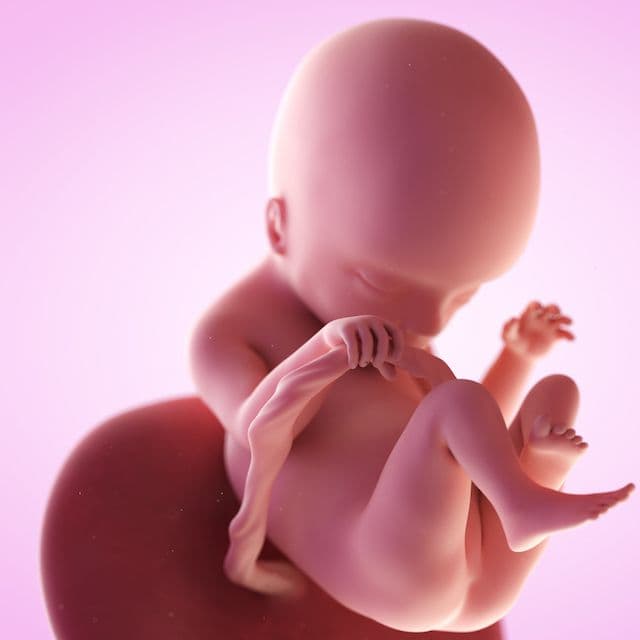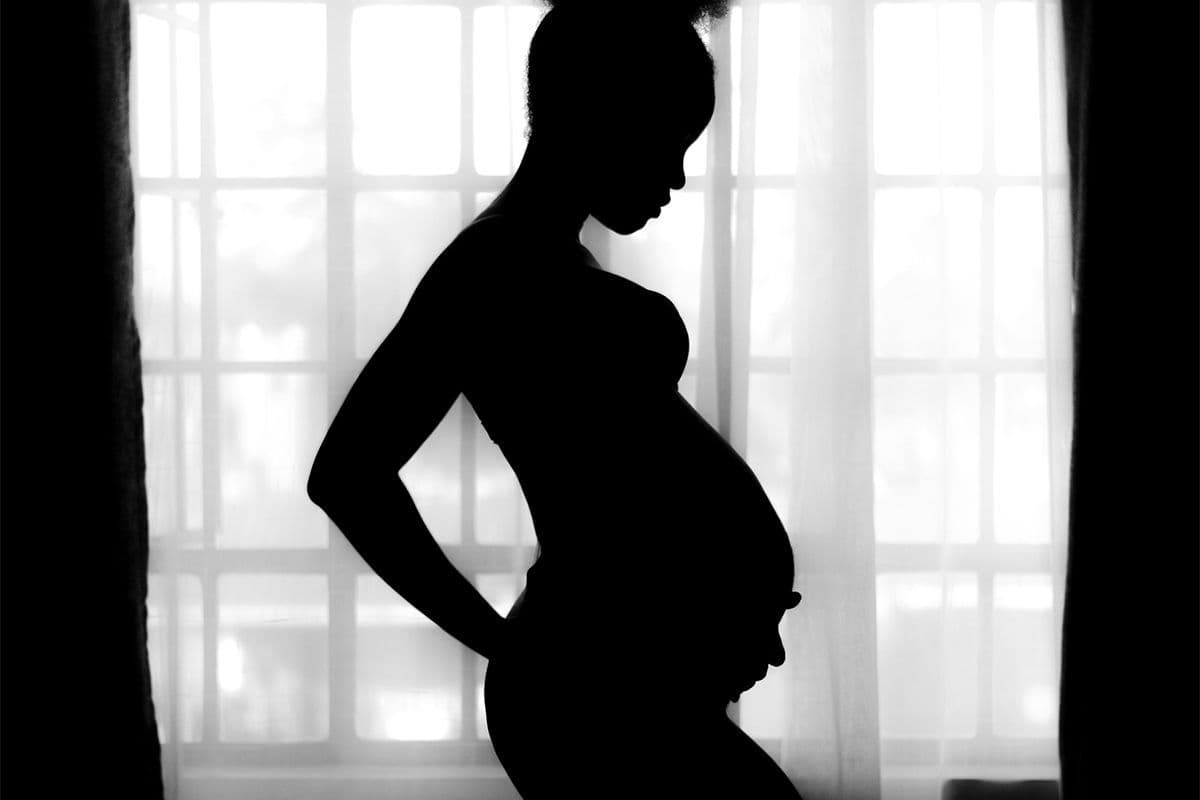18 Weeks Pregnant
Pregnancy Week by Week
Obie Editorial Team

Your baby, your body, your partner and the prenatal visit, plus tips for the 18th week of pregnancy.
Your baby
All the changes in the womb are starting to show. Your baby now looks like a human and can weigh up to 8 ounces. Bowel development continues and the first bowel movement, meconium, is developing inside. Baby will not pass the first movement until after birth, in most cases. The fingers and toes are developing pads and soon fingerprints will form. The boy fetus is developing the prostate gland during week 18 of pregnancy.

18 weeks fetus on ultrasound face profile
Small, rhythmic movements of the stomach may be noticed at this time. These movements are like exercises for the fetus, but you may know recognize them as small hiccups.
Your body
Dizziness and lightheadedness may continue to be a problem during the 18th week. Blood volume increases can cause a lag in the cardiovascular system, which leads to these symptoms. Some pregnant women find walking with a cane helpful to maintain balance.
At the prenatal visit
An ultrasound is commonly scheduled between the 18th and 20th week — if one has not already been performed. Your baby's gender may be determined during the ultrasound as well as measurements of the arms, legs, head, and abdomen. These measurements are used to determine fetal age and estimate a more realistic date of delivery.
Ultrasounds pose no threat to the baby. A gel-like liquid is placed on the belly, sounds are bounced off the fetus and a picture results. The only annoying part of the test is that you will need a full bladder. This will bring the uterus closer to the surface of the skin.
Your partner
Emotional mood swings are common during pregnancy but you can help by offering a shoulder to lean on and a sympathetic ear. Remember that the flood of changing hormones combined with the immense changes taking place in the body can be quite overwhelming.
Tips for this week
Finding out if you are having a boy or a girl is an exciting part of pregnancy, but both parents need to remember that ultrasound technology is not a perfect science. Unless an amniocentesis was performed and sex determined based on chromosomes, the guess is just a guess, or better, it's a very, very educated guess. Identifying the fetal sex on ultrasound can be over 99% accurate, but it's never 100%.
Read More











